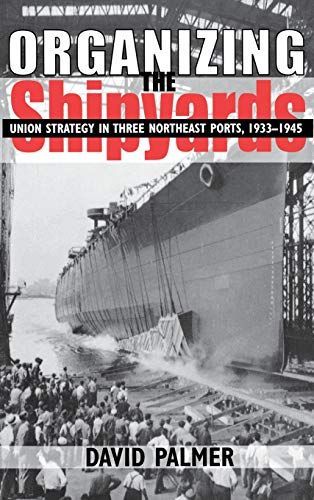
Organizing the Shipyards Union Strategy in Three Northeast Ports, 1933-1945
In Organizing the Shipyards, David Palmer documents the history of union organizing at three of America's largest private shipyards from the Great Depression and the beginning of the New Deal to the end of World War II. These yards had tremendous strategic importance because of their location in the Northeast's three port regions: New York Shipbuilding in the port of Philadelphia, Bethlehem Fore River Shipyard in the port of Boston, and Federal Shipbuilding in the port of New York. The Industrial Union of Marine and Shipbuilding Workers of America, which led each of the drives, pioneered industrial unionism and became one of the largest of the new CIO unions, with a quarter of a million members in an industry that employed more wartime workers than any other. Using oral history interviews with former union officials, organizing staff, and rank-and-file workers, Palmer presents both a narrative and a scholarly account. He covers the successes and the failures of union organizing in the yards themselves, in neighboring communities, and sometimes in outreach to political leaders as elevated as Secretary of Labor Frances Perkins and President Franklin D. Roosevelt. In the process, Palmer offers a reassessment of the basis for the early gains of the CIO and also for its subsequent bureaucratization.